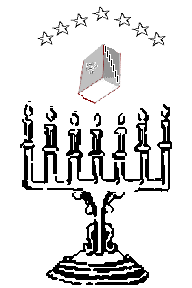JoeT
Member
Jesus doesn't say "This is my real body and my real blood."
Your right Christ didn't say "This is my real body. . .," rather He said "This IS my Body . . . This IS my Blood." I'm sure you know "IS" is a state of being. It is not the Clinton iffy 'is is'.
The disgusted walked away, you do recall that don't you? They, in effect, turned their back on Christ going back to Capharnaum. Those remaining had nowhere else to go, you do recall that don't you? They believed Christ when He handed them HIS Body and His Blood.His disciples would have been disgusted.
. The Seder meal was a commandment of God. As we just posted, Seder is a remembrance or a commemoration. It is held on the day before pasch as the celebration of the unleavened bread.They knew the symbolism, just like they knew the symbolism in the Seder meal.
You can say it as many times as you need, nevertheless the Real Presence of Christ has the appearance of bread and wine, an unbloody sacrifice.Again, if it's real flesh and real blood, then Christians are cannibals.
Do you realize that cannibals eat their victims in order to get the spirit energy of the victim and become stronger? Your claim is a variation of cannibalism.
Indeed I do, they say they abide in their victims. Jesus said "Except you eat the flesh of the Son of man, and drink his blood, you shall not have life in you." [John 6:54] But then continued to say, "
He that eateth my flesh, and drinketh my blood, abideth in me, and I in him." [John 6:57]. It seems He didn't have any delusions about what He was saying.
How do you 'abid' in a symbol?
Jesus would never have done such a thing. Thus the idea of real flesh and real blood is not true.
Now, we have insight to the mind of "Particular"! God wouldn't ever do anything that offends Particular. Consequently, Christ takes the form of bread and wine to keep from offending you.
Just as the Lutheran idea of real presence is not true. Both misunderstand Jesus last supper and what Jesus was saying. The Roman Church twists it even worse by claiming the need to eat the flesh and drink the blood to retain salvation.
That's not true see Luther's "(Confession Concerning Christ’s Supper". 1528. Luther did indeed believe in the real presence, except that bread was over and under Christ. Which of course is an another error in itself.
JoeT

